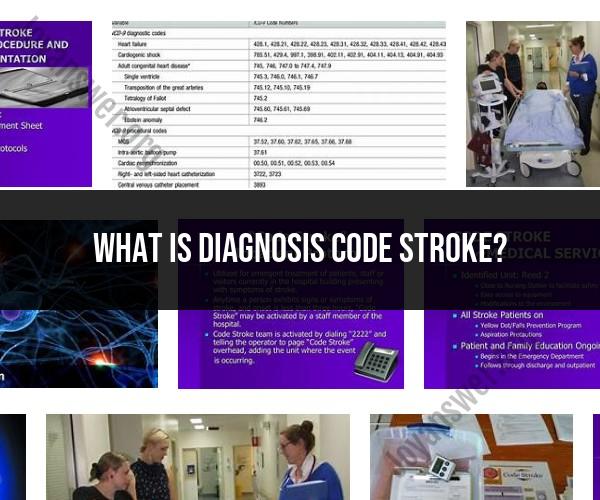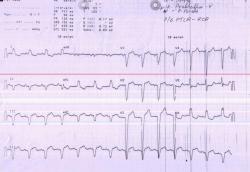What is diagnosis code stroke?
In medical coding, a diagnosis code is a specific alphanumeric code used to represent a patient's medical condition or diagnosis. This coding system helps healthcare providers, insurers, and researchers communicate consistently about medical conditions. "Stroke" is a medical condition that has its own set of diagnosis codes within the International Classification of Diseases, 10th Revision (ICD-10) coding system. Here's an overview of stroke diagnosis codes:
ICD-10 Stroke Codes:In the ICD-10 coding system, stroke is categorized under Chapter 9, "Diseases of the Circulatory System," in the range I60 to I69. Within this range, different codes are used to specify different types of strokes and their characteristics.
Ischemic Stroke (Cerebral Infarction):
- I63 - Cerebral infarction
- I63.0 - Cerebral infarction due to thrombosis of precerebral arteries
- I63.1 - Cerebral infarction due to embolism of precerebral arteries
- I63.2 - Cerebral infarction due to unspecified occlusion or stenosis of precerebral arteries
Hemorrhagic Stroke (Intracerebral and Subarachnoid Hemorrhage):
- I60 - Subarachnoid hemorrhage
- I61 - Intracerebral hemorrhage
- I62 - Other nontraumatic intracranial hemorrhage
Transient Ischemic Attack (TIA):
- G45 - Transient cerebral ischemic attacks and related syndromes
Sequela of Stroke:
- I69 - Sequelae of cerebrovascular disease
Each of these codes has additional levels of specificity that allow healthcare professionals to accurately document the type, location, and severity of the stroke. The ICD-10 codes are important for medical records, insurance claims, research, and statistical analysis.
It's crucial to note that medical coding is a complex field that requires training and expertise. Accurate coding ensures that patient data is properly documented, medical records are complete, and insurance claims are processed correctly. For specific cases, it's recommended to consult with qualified medical coders or healthcare professionals who are trained in accurately assigning diagnosis codes.













